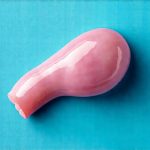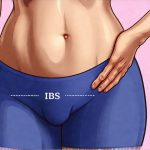Introduction
The intersection of Irritable Bowel Syndrome (IBS) and urological symptoms in men is increasingly recognized as a complex area requiring nuanced understanding and management. Many men experiencing IBS also report overlapping urinary issues like urgency, frequency, incomplete emptying, and even pelvic pain – often leading to significant distress and impacting quality of life. This isn’t necessarily indicative of two separate conditions; rather it suggests intricate connections between the gut microbiome, nervous system regulation, and pelvic floor function. Ignoring this overlap can lead to misdiagnosis or suboptimal treatment strategies focusing solely on one area (either gastrointestinal or urological) without addressing the underlying interconnectedness. Understanding how diet plays a pivotal role in managing both IBS and associated urinary symptoms is therefore crucial for improving overall well-being.
The challenge lies in the fact that dietary recommendations often differ depending on whether the focus is strictly IBS or solely urological health. For example, some traditionally recommended bladder-soothing diets might inadvertently exacerbate IBS symptoms, and vice versa. A truly effective approach requires a tailored strategy acknowledging this interplay – one that considers individual sensitivities, symptom triggers, and the unique way each man’s body responds to various foods. This article will explore dietary advice specifically geared towards men navigating both IBS and urological concerns, focusing on practical steps and evidence-based considerations rather than rigid restrictions. The aim is to empower individuals with knowledge to make informed choices that support a healthier gut and bladder – and ultimately, a better quality of life.
Dietary Strategies for Overlapping IBS & Urological Symptoms
The cornerstone of managing both IBS and urological symptoms through diet lies in identifying and eliminating trigger foods. This isn’t about blanket restrictions; it’s about personalized exploration and mindful observation. A food diary is an invaluable tool, meticulously recording what you eat, when you eat it, and – most importantly – how you feel afterwards (both gastrointestinal and urological symptoms). Look for patterns: are there specific foods consistently linked to increased urgency or bloating? Does caffeine seem to worsen both your bowel movements and bladder irritation? This self-awareness is the first step towards building a sustainable dietary plan. Beyond elimination, focusing on anti-inflammatory foods can be exceptionally beneficial, as chronic inflammation often underlies both conditions.
Many men find success with low FODMAP diets for IBS management. FODMAPs (Fermentable Oligosaccharides, Disaccharides, Monosaccharides and Polyols) are types of carbohydrates that can be poorly absorbed in the small intestine, leading to fermentation by gut bacteria and subsequent symptoms like gas, bloating, and altered bowel habits. While effective for many with IBS, it’s essential to implement low FODMAP under the guidance of a registered dietitian to ensure nutritional adequacy and prevent unnecessary restriction. The same caution applies to urological symptoms; certain low-FODMAP foods might be bladder irritants (like citrus fruits), requiring further individual assessment.
Crucially, hydration is often overlooked but profoundly important. Adequate fluid intake helps dilute urine, reducing irritation for the bladder, and supports healthy bowel function preventing constipation which can exacerbate both IBS and urinary issues. Aim for at least 8 glasses of water daily, though this will vary based on activity level and climate. Avoid excessive caffeine, alcohol, and sugary drinks, as these are known bladder irritants and can also worsen IBS symptoms. Consider incorporating herbal teas (non-caffeinated) like chamomile or ginger which may have soothing properties for both the gut and urinary tract – but always check with your healthcare provider if you’re on medication. To further support optimal hydration levels, consider reviewing safe hydration foods for daily intake.
Identifying & Managing Bladder Irritants
Bladder irritants are substances that can directly stimulate the bladder lining, leading to urgency, frequency, and discomfort. While individual sensitivities vary, some common culprits include: – Caffeine (coffee, tea, soda) – Alcohol – Artificial sweeteners – Spicy foods – Acidic fruits (citrus, tomatoes) – Carbonated beverages – These often contain phosphoric acid which irritates the bladder. Identifying these triggers is essential for tailored dietary management. It’s not always about complete elimination; sometimes reducing portion sizes or frequency can make a significant difference.
The concept of “bladder retraining” can complement dietary adjustments. This involves gradually increasing the time between bathroom visits, even if you feel urgency. This helps to desensitize the bladder and improve its capacity. Combining this with mindful awareness of your body’s signals – recognizing the difference between true urgency and a perceived need to go – can empower you to better manage your symptoms. Remember that stress often exacerbates both IBS and urinary issues, so incorporating stress-reducing techniques (yoga, meditation, deep breathing) into your daily routine is also vital.
It’s important to distinguish between foods that are inherently irritating and those that become problematic due to underlying gut dysfunction. For example, someone with a healthy gut might tolerate moderate amounts of citrus fruit without issue, while someone with IBS may experience bladder irritation even from small quantities. Addressing the root cause of your IBS – by focusing on gut health and healing – can sometimes improve tolerance to previously irritating foods. This highlights why individualized assessment and dietary adjustments are so critical.
The Gut-Bladder Connection & Probiotics
The emerging understanding of the gut-brain-bladder axis reveals a profound interconnectedness between these systems. The gut microbiome (the trillions of bacteria residing in your digestive tract) plays a significant role in modulating inflammation, nerve function, and immune response – all of which can impact bladder health. An imbalance in gut bacteria (dysbiosis) has been linked to increased intestinal permeability (“leaky gut”), allowing inflammatory molecules to enter the bloodstream and potentially trigger both IBS and urological symptoms.
Probiotics (live microorganisms) can help restore a healthy balance to the gut microbiome, potentially reducing inflammation and improving bladder function. However, it’s essential to choose strains specifically researched for their potential benefits in IBS and urinary health. Some strains like Lactobacillus rhamnosus GR-1 and Lactobacillus reuteri RC-14 have shown promise in reducing IBS symptoms, while others may support overall gut barrier function. Prebiotics (fibers that feed beneficial bacteria) are equally important; incorporating foods like garlic, onions, asparagus, and bananas can help nourish your existing microbiome.
The key is to view the gut not just as a digestive organ but as a central regulator of overall health – including urological well-being. Focusing on dietary strategies that promote a diverse and balanced gut microbiome can have far-reaching benefits beyond symptom relief. This includes minimizing processed foods, sugar, and antibiotics (unless absolutely necessary), which can disrupt the delicate ecosystem within your gut. Remember to introduce probiotics gradually to avoid digestive upset, and consult with your healthcare provider before starting any new supplement regimen.
Dietary Fiber & Bowel Regularity
Constipation is a common contributor to both IBS and urological symptoms in men. A full bowel can press on the bladder, reducing its capacity and leading to urgency or incomplete emptying. Conversely, diarrhea can also exacerbate urinary issues due to increased inflammation and irritation. Therefore, achieving regular bowel movements through dietary fiber intake is paramount. However, navigating fiber with IBS requires caution; some types of fiber can worsen symptoms in certain individuals.
Soluble fiber, found in foods like oats, barley, apples, and beans, absorbs water in the gut, softening stools and promoting regularity without causing excessive gas or bloating. Insoluble fiber, present in whole grains, vegetables, and fruits with skin, adds bulk to stool but can be more irritating for some with IBS. A gradual increase in fiber intake is crucial; adding too much too quickly can lead to bloating and discomfort.
It’s also important to differentiate between fiber from whole foods and fiber supplements. Whole food sources provide additional nutrients and benefits beyond just fiber content. Psyllium husk, a common fiber supplement, can be effective for constipation but may cause gas or bloating in some individuals. Consider experimenting with different types of fiber – both soluble and insoluble – to determine what works best for your body. Alongside adequate hydration, prioritizing fiber-rich foods is a cornerstone of managing IBS and supporting healthy bladder function. For men experiencing chronic UTI issues, it’s worth exploring nutrition planning for additional support.
Disclaimer: This article provides general information about dietary considerations for men experiencing overlapping IBS and urological symptoms. It is not intended as medical advice and should not be used to replace the guidance of a qualified healthcare professional. Always consult with your doctor or a registered dietitian before making any significant changes to your diet, especially if you have underlying health conditions or are taking medications. Individual responses to dietary interventions can vary significantly; what works for one person may not work for another.





















